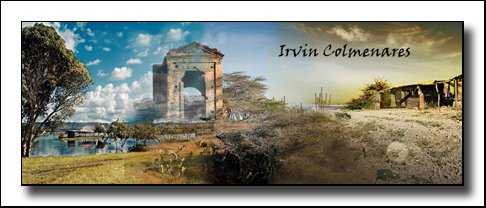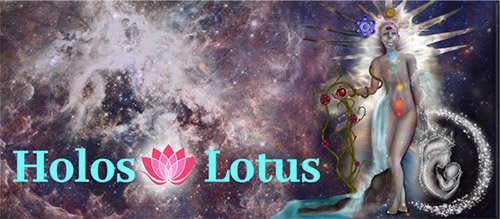
A comienzos de los ochenta ya tenía cinco años en Maracay, me había adaptado bastante bien a la ciudad, aunque a veces extrañaba un poco el bullicio y el movimiento frenético de Caracas.
Con frecuencia los viernes en la tarde me iba con mi esposa y mi niño pequeño a la capital, a visitar a la familia, el trayecto era relativamente corto, de un poco más de cien kilómetros.
El viaje entre Maracay y Caracas era agradable y muy relajado, en aquel tiempo la utopista era poco transitada y casi siempre estaba en óptimas condiciones. A eso se agregaba la facilidad de tener vehículo propio, lo que facilitaba las cosas con el niño que podía dormirse plácidamente en su sillita colocada en el asiento de atrás.
En Caracas siempre era fácil asistir a eventos que no eran frecuentes en Maracay, así que aprovechábamos cada visita para ver películas de arte y ensayo o escuchar conciertos en sitios públicos como la Universidad Central.
Por esos años me había vuelto la nostalgia por la vida de estudiante, tenía ganas de continuar estudiando. Las opciones no eran muchas, prácticamente se limitaban al Pedagógico de Maracay y la Universidad de Carabobo. Como no me resultaban atractivos los cursos de postgrado que ofrecía el Pedagógico de Maracay me incliné por iniciar una nueva carrera en la Universidad de Carabobo, en el núcleo que queda en la Morita, allí me inscribí en la carrera de Administración.

Con el inicio de la Universidad incorporé una nueva rutina en mi vida. Salía de mi casa a las cinco y media para ir a las clases y regresaba un poco pasadas las diez de la noche. Esto lo hacía casi siempre de lunes a jueves, procuraba dejar el viernes libre para irme a Caracas.
Generalmente al terminar las clases me traía de regreso algunos compañeros que vivían en diferentes sectores de Maracay, a veces nos quedábamos estudiando un rato en algunas de las plazas de la ciudad. En esas oportunidades casi siempre recargábamos energía en una calle de servicio que estaba al lado de la Avenida de las Delicias, donde años más tarde se construiría el Centro Comercial Paseo las Delicias.
Antes del Centro Comercial el espacio estaba ocupado por esa calle de servicio y un gran área verde. En las noches la apacible calle de servicio se transformaba en la “calle del hambre”, un sitio donde se reunían una gran cantidad de vendedores de comida rápida, abundaban los puestos de venta de perros calientes, hamburguesas y nuestra ahora mundialmente conocida arepa.
A mis amigos les gustaban más los perros calientes, yo en cambio prefería las arepas. Cada vez que parábamos yo me iba a un puesto distinto, y fue así que un día me topé con el negocio de Daniel, un maracucho muy peculiar al que le gustaba escuchar Salsa. En su puesto tenía un buen equipo de sonido donde siempre estaba sonando algún cassette de música caribeña.
Un día mientras comía mi arepa con queso amarillo la mezcla musical dio un giro inesperado, había finalizado un tema muy conocido de Héctor Lavoe con fuertes descargas de metales, y comenzó una canción con un registro completamente distinto, suaves acordes de piano iban introduciendo la melodía, y paso a paso se incorporaba un exquisito arreglo de violines.
Al escuchar ese intro tan delicado mi expectativa aumentó, yo sabía que Daniel solo escuchaba Salsa, pero aquel tema comenzaba de otro modo, unos segundos después comenzó la conocida voz de Willie Colón recitando unos versos sin casi acompañamiento musical.
Ya para ese momento mi atención estaba totalmente concentrada en el tema que estaba oyendo, me llamaba poderosamente la atención aquella lírica que hablaba de temas “etéreos y existenciales”, cosas muy distintas a las que se decían en las tradicionales canciones del género.
Al finalizar la canción me quedé un rato meditando, esperando una pausa en el ajetreo de la noche para hacerle algún comentario a Daniel. Llegado el momento le pregunté a Daniel cuál era ese tema de Willie Colón. ¡Verdad que es bueno…! Me dijo con una sonrisa en los labios.
¡Sí, es buenísimo…! le respondí, primera vez que lo escucho.
¡ Es que es de un disco nuevo…! Me dijo Daniel, e inmediatamente le pedí las señas.
En mi siguiente visita a Caracas me fui directamente a la tienda Don disco de Chacaito, donde sabía que siempre estaban disponibles las últimas novedades del mercado discográfico. Al primer vendedor que me atendió le dije que si tenía un disco de Willie Colón, con la canción “Oh qué será”. Su respuesta fue afirmativa y acto seguido me mostró la carátula del álbum “Fantasmas”, editado en el año 1981.
Ese fin de semana fue uno de los pocos donde desee regresar pronto a Maracay, en Caracas no tenía equipo de sonido para escuchar el disco de Willie Colón, un disco que rompió esquemas en el género de la música Caribeña y que continúo disfrutando cada vez que lo escucho.
Es probable que muchos de ustedes hayan escuchado esta canción que les comparto hoy. En realidad no es original de Willie Colón, se trata de un arreglo sobre la canción original compuesta por el músico y poeta brasileño Chico Buarque.
Esta es una de esas veces en que el arreglo es más conocido que la versión original. La letra es muy, pero muy interesante, y se podría decir que es bastante enigmática, como si fuese hecha a la medida de cada quien. Si no la han escuchado los invito a que le presten atención.
Gracias por tu tiempo.


By the early 1980s, I had been living in Maracay for five years and had adapted quite well to the city, although I sometimes missed the hustle and bustle of Caracas.
On Friday afternoons, I would often take my wife and young son to the capital to visit family. The journey was relatively short, just over 100 kilometers.
The trip between Maracay and Caracas was pleasant and very relaxed. At that time, the highway was not very busy and was almost always in excellent condition. Added to that was the convenience of having our own vehicle, which made things easier with the child, who could sleep peacefully in his car seat in the back.
In Caracas, it was always easy to attend events that were not frequent in Maracay, so we took advantage of each visit to see art house films or listen to concerts in public places such as the Central University.
During those years, I had become nostalgic for student life and wanted to continue studying. There weren't many options, practically limited to the Pedagogical University of Maracay and the University of Carabobo. Since I wasn't attracted to the graduate courses offered by the Pedagogical University of Maracay, I decided to start a new degree at the University of Carabobo, at the campus in La Morita, where I enrolled in the Business Administration program.
With the start of university, I incorporated a new routine into my life. I left home at 5:30 a.m. to go to class and returned a little after 10 p.m. I did this almost every day from Monday to Thursday, trying to keep Fridays free to go to Caracas.

When classes ended, I would usually give some of my classmates who lived in different parts of Maracay a ride home. Sometimes we would stay and study for a while in one of the city's squares. On those occasions, we would almost always recharge our batteries on a service road next to Avenida de las Delicias, where the Paseo las Delicias shopping center would be built years later.
Before the shopping center, the space was occupied by that service road and a large green area. At night, the peaceful service road was transformed into the “street of hunger,” a place where a large number of fast food vendors gathered, with an abundance of stalls selling hot dogs, hamburgers, and our now world-famous arepa.
My friends liked hot dogs better, but I preferred arepas. Every time we stopped, I would go to a different stand, and that's how one day I came across Daniel's business, a very peculiar guy from Maracaibo who liked to listen to salsa. He had a good sound system at his stand where he always played Caribbean music cassettes.
One day, while I was eating my arepa with yellow cheese, the music took an unexpected turn. A well-known song by Héctor Lavoe with strong brass riffs had ended, and a song with a completely different tone began. Soft piano chords introduced the melody, and little by little, an exquisite violin arrangement was incorporated.
Hearing such a delicate intro heightened my expectations. I knew that Daniel only listened to salsa, but this song began differently. A few seconds later, the familiar voice of Willie Colón began reciting some verses with almost no musical accompaniment.
By that point, my attention was completely focused on the song I was listening to. I was powerfully drawn to the lyrics, which spoke of “ethereal and existential” themes, very different from what was said in traditional songs of the genre.
When the song ended, I sat there for a while, waiting for a break in the hustle and bustle of the night to say something to Daniel. When the moment came, I asked Daniel what that Willie Colón song was. “It's really good, isn't it?” he said with a smile.
“Yes, it's great!” I replied. “It's the first time I've heard it.”
“It's from a new album!” Daniel told me, and I immediately asked him for the details.
On my next visit to Caracas, I went straight to the Don Disco store in Chacaito, where I knew they always had the latest releases. I asked the first salesperson I saw if they had a Willie Colón album with the song “Oh qué será.” He said yes and immediately showed me the cover of the album Fantasmas, released in 1981.
That weekend was one of the few times I wished I could return to Maracay soon. In Caracas, I didn't have a stereo to listen to Willie Colón's album, an album that broke the mold in the Caribbean music genre and that I continue to enjoy every time I listen to it.
Many of you have probably heard the song I'm sharing with you today. It's not actually an original by Willie Colón, but rather an arrangement of the original song composed by Brazilian musician and poet Chico Buarque.
This is one of those times when the arrangement is better known than the original version. The lyrics are very, very interesting, and you could say they're quite enigmatic, as if they were tailor-made for each person. If you haven't heard it, I invite you to give it a listen.
Thank you for your time.
Translated with DeepL.com (free version).








Comunidad Be Entrepreneur


Do you want to get involved? Do you want to support music and this project? Follow us to keep you updated and read our Introduction post!
🎶 Join us on our Discord Server! 🎵
Thank you so much.
Oye, @irvinc Qué bonito viaje por la memoria. Me encantó cómo conectaste la historia con la canción se siente muy vivo todo el relato.
Me alegra que te haya gustado la publicación. Estás canciones siempre me traen alguna historia. Gracias por pasar y comentar estimado @magicfingerz. Un fuerte abrazo desde Maracay.
You've been curated by @amazingdrinks! Delegations welcome!
Thank you so much.